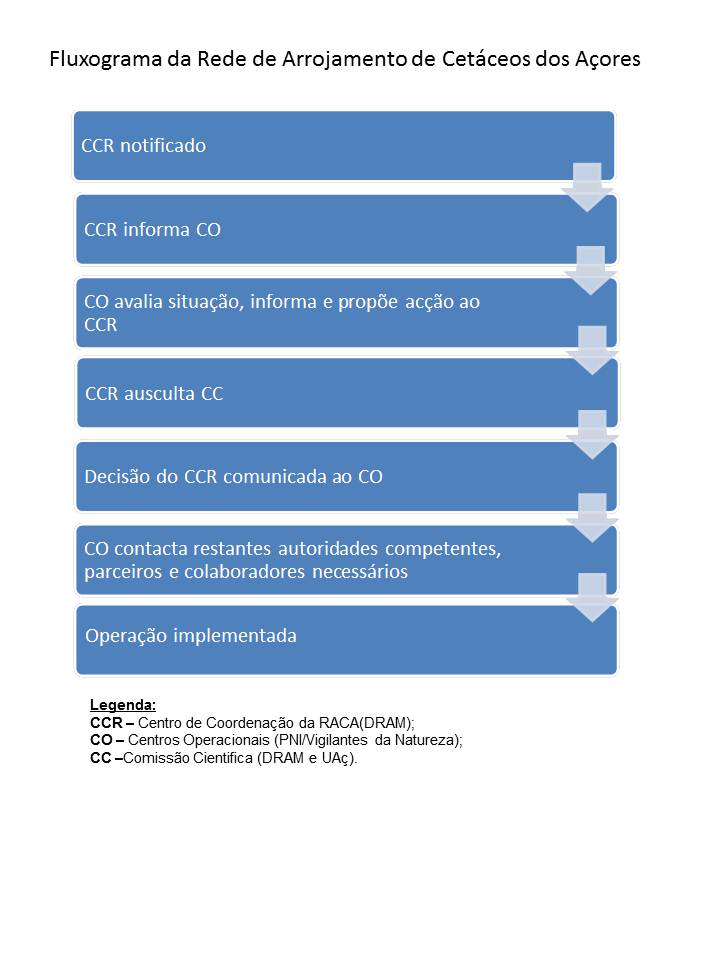- Maritime Activities
- Biodiversity
- Sea Management
- Marine Protected Areas
- Licensing
- Projetos
The Azorean Stranding Network (RACA) has been implemented since 1999 and is legislated by Resolution No 72/2006 from 29 June having the following objectives:
• Minimize possible threats to human safety and health from stranded marine animals;
• Minimize pain and suffering of live stranded animals;
• Obtain maximum scientific and educational benefits from stranded animals (live and dead)
Currently, the Regional Legislative Decree No. 15/2012/A from 2 April (Legal framework for nature conservation and biodiversity protection) is the legal instrument in which RACA is included. The operating structure of RACA is coordinated at the regional level by the autonomous regional administration department responsible for nature conservation at sea (DRAM) and, at the local level, by the island operating services of the environmental authority (SRAAC).
Marine animal’s stranding’s enables the systematized collection of scientific information and are a valuable contribution to the knowledge of the marine environment, on a regional and global scale.
The regular practical training of partners, volunteers, and collaborators as well as the implementation of action protocols will allow for an effective, timely, and appropriate response to each stranding event.
Each stranding event is unique and the response will depend on factors such as the location, species and size of the stranded animal, its state of decomposition, and the type of stranding.
Coordination of efforts by various entities and individuals is essential in order to provide adequate attention and care to stranded animals that arrive sick or dead at any coastal location in the region. An optimized response to stranding events at the scientific level, with standardized collection of data and samples, allows better management of the species, improving the knowledge of the health status of populations and consequently the evaluation of their conservation status.
Scientific analysis of stranded animals can contribute to obtain biological parameters of numerous species, increase knowledge about their pathologies, and monitor the type, origin, and levels of ocean contaminants to which they are exposed, in addition to the anthropogenic risks and threats to which these animals are subjected.
Data that can be collected from stranded animals also provide a way to sample the populations that inhabit the sea and in some cases enable access to data that are not accessible through other forms of monitoring.
Currently, RACA is being restructured and is in the process of optimizing the effectiveness of response to stranding events in the Autonomous Azorean Region, namely through DRAM's participation in European projects such as Marcet, Indicit, Mistic Seas and Life IP Azores Natura.
If you find an animal stranded or in distress at sea you can collaborate with RACA by contacting us at +351 912 233 518.







